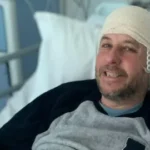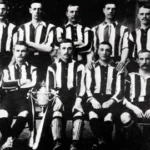Other News
Polls open in Moldova in a tense parliamentary election plagued with reports of Russian interference
Read more on post.

ADVERTISEMENT
Moldovans are heading to the polls to cast their ballots in what many consider a crucial parliamentary election with high stakes and a central question – will the country choose to integrate with the European Union or drift back into Moscow’s fold?
Sunday’s pivotal vote will elect a new 101-seat parliament, after which Moldova’s president nominates a prime minister, generally from the leading party or bloc, which can then try to form a new government. A proposed government then needs parliamentary approval.
The tense race pits the governing pro-Western Party of Action and Solidarity (PAS), which has held a strong parliamentary majority since 2021 but risks losing it, against several Russia-friendly opponents but no viable pro-European partners.
The lack of further pro-European candidates, and claims of heavy Russian interference leading up to the vote has created a wave of uncertainty over potential outcomes and the geopolitical course the country will take.
Moldova is landlocked between Ukraine and European Union member Romania. The country of about 2.5 million people has spent recent years on a westward path and gained candidate status to the EU in June 2022, just months after Russia launched a full-scale invasion of Ukraine.
Moldovan Prime Minister Dorin Recean warned that Russia is spending “hundreds of millions” of euros as part of an alleged “hybrid war” to try to seize power, which he described as “the final battle for our country’s future.”
“I call on every Moldovan at home and across Europe: We cannot change what Russia does, but we can change what we do as a people,” he said. “Turn worry into mobilisation and thoughtful action … Help stop their schemes.”
The alleged Russian strategies include a large-scale vote-buying operation, cyberattacks on critical government infrastructure, a plan to incite mass riots around the election, and a sprawling online disinformation campaign to diminish support for the pro-European ruling party and sway voters towards Moscow-friendly candidates.
Russia has repeatedly denied meddling in Moldova and dismissed the allegations last week as “anti-Russian” and “unsubstantiated.”
Authorities have warned that Moldova’s election day could be targeted by false bomb threats, cyberattacks, temporary power outages, and street violence by trained individuals.
Law enforcement officers have carried out hundreds of raids leading up to the vote, detaining many they suspect planned to cause disruptions to the country’s election.
Moldova’s large diaspora is also expected to play a decisive role in Sunday’s outcome.
In last year’s presidential run-off — which was also viewed as a choice between East and West — a record number of 327,000 voters cast ballots abroad, more than 82% of whom favoured pro-Western President Maia Sandu, ultimately securing her re-election.
A key opponent of PAS is the pro-Russian Patriotic Electoral Bloc, a group of political parties that wants “friendship with Russia,” and “permanent neutrality.”
Others include the populist Our Party, which wants “balanced foreign policy” between East and West, and the Alternativa Bloc, which claims to be pro-European, but critics say would seek closer ties to Moscow.
The country’s economic situation is also at the forefront of voters’ minds in this election cycle. Rampant inflation and a worsening cost living crisis, coupled with high poverty rates, may have diminished support for the incumbent ruling party, founded by Sandu in 2016.
Most local polls however project PAS to win the most votes, but these polls do not factor in the large diaspora. Polls have also reflected that about a third of voters remain undecided in the days leading up to the election.
In the 2021 parliamentary election, turnout was just over 48%. Experts and analysts predict that the higher the turnout, the more likely it is that PAS can secure a majority and form a government.
Additional sources • AP
Breaking News
‘My tears could help people survive brain tumours’
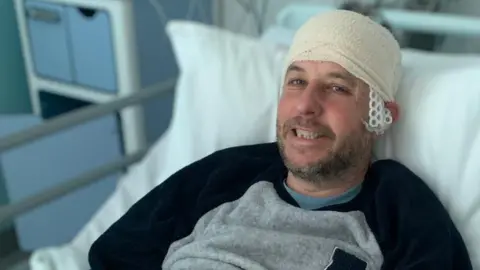
Read more on post.
Lynette HorsburghNorth West
A father with an incurable brain tumour has donated his tears to a pioneering study that could revolutionise how brain cancers are detected because he wants to “make a difference”.
Alex Davies was initially treated for epilepsy but months later scans revealed he had a brain tumour and was told he may only have 12 to 18 months to live.
The 49-year-old is now taking part in research at the Manchester Cancer Research Centre exploring if tear fluid can identify glioblastoma, the most aggressive form of brain tumour.
He is hoping the study will result in earlier diagnoses and ultimately save lives.
Mr Davies, from Lostock, Bolton, started suffering seizures in 2023 before later undergoing surgery, chemotherapy and radiotherapy.
Follow-up scans initially showed no evidence of cancer but later tests discovered the tumour was growing back and he is now receiving palliative care at home.
 Cancer Research UK handout
Cancer Research UK handoutMr Davies, who worked at Network Rail before his diagnosis, said he was relatively fit with no health conditions when he “collapsed out of the blue”.
“It took months to get to my diagnosis and my initial MRI scan didn’t spot the tumour,” he said.
“My symptoms worsened over about three months including severe headaches, my speech became affected as well as my balance and I was getting confused.”
The father-of-two continued: “If helping with this research could mean someone like me can be diagnosed sooner, it offers real hope for the future.”
Mr Davies’ wife Emma said it was a “really horrible time for us”.
She said if a simple tear test could be used to bring a diagnosis forward it “would improve that awful time for so many others in the future”.
Thanks to nearly £500,000 funding from Stand Up To Cancer – a joint fundraising campaign from Cancer Research UK and Channel 4 – the study led by scientists at the University of Manchester has expanded to include larger-scale trials.
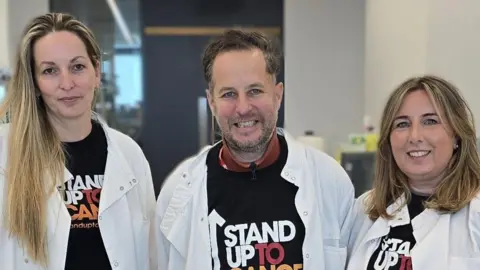 Cancer Research UK handout
Cancer Research UK handoutResearchers have described the test as a “liquid biopsy” and said the “world-first approach” could pave the way for faster, cheaper and less invasive brain cancer diagnosis.
If successful, the test could be rolled out to GP surgeries which would allow patients to receive a diagnosis much earlier.
Prof Petra Hamerlik, who lost her father to glioblastoma at a young age, is leading the project.
She said the research had not previously been explored to diagnose brain cancer.
“My team is currently developing a tear-protein-based classifier that can differentiate brain cancer patients from healthy volunteers with high levels of accuracy,” she said.
“If successful, we’ll seek further funding to develop a tool that can be rapidly deployed across health services, ultimately helping patients like Alex receive a timely diagnosis and better outcomes.”
Breaking News
The night the FA Cup was stolen from a shop window
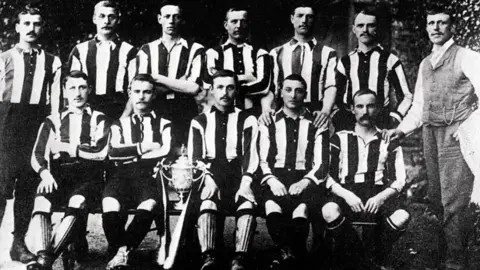
Read more on post.
Lee BottomleyWest Midlands
The FA Cup is one of the most well-known sports trophies in the world, seen by millions each football season and shown off by whichever team lifts it after the final.
But, 130 years ago, on a September night, the first incarnation of the cup was stolen and the identity of the criminals was a mystery for decades.
The story began when Aston Villa won the cup final in 1895, beating West Bromwich Albion 1-0, and returned to Birmingham with the trophy.
This first cup had been made for £20, by Sheffield-based silversmiths Martin, Hall & Co, and was known as the “little tin idol”, according to the National Football Museum (NFA).
Villa supporter William Shillcock, a local boot and ball maker, approached the club and asked if he could display the cup in his show window, so fans could see it up close.
But, after a couple of weeks on display, on the 11 September during the middle of the night, the burglars struck.
 Reuters
ReutersFinding the trophy gone and with police struggling to find the culprits, a reward of £10 was offered but without any luck – it was never seen again.
That outcome was not a good one for the winners of the cup final, Aston Villa – they were fined £25 by the Football Association (FA) as the prize was lost while it was in their care.
The stolen cup though needed replacing so a firm was sought to produce one.
The selected business, a Birmingham company which had connections to Villa, silversmiths Vaughtons, were commissioned to make the replacement.
The founder’s grandson, Howard Vaughton, had a close connection with the trophy, having won the FA Cup with Villa in 1887 and, by 1895, he was a partner in the firm, the NFA said.
Luckily, three years before, the company had taken a plaster cast of the trophy in order to make a miniature for Wolverhampton Wanderers.
 PA Media
PA MediaThe Birmingham-made FA Cup was used until 1910, when it was presented to the President of the FA, Lord Kinnaird and replaced with a trophy made in Bradford.
But what of the stolen cup?
Well, we spin the clock forward to the late 1950s and, in that decade, there came an admission over the theft of the original trophy.
A petty criminal from Birmingham, by then in his 80s, claimed he and two others had stolen the silverware and melted it down to make fake half-crown coins.
He even suggested some of the counterfeit money was spent at a pub run by former Aston Villa player Dennis Hodgetts, who had won the FA Cup with Villa in both 1895 and 1887, said the NFA.
The elderly criminal was said to have wanted to get the theft off his conscience – but his confession to a newspaper journalist could never be proved.
Other News
Latest news bulletin | September 28th, 2025 – Morning

Read more on post.
Updated: 28/09/2025 – 7:00 GMT+2
Catch up with the most important stories from around Europe and beyond this September 28th, 2025 – latest news, breaking news, World, Business, Entertainment, Politics, Culture, Travel.
-
Politics5 days ago
European Parliament snubs Orbán with vote to shield Italian MEP from Hungarian arrest
-
Culture2 months ago
Fatal, flashy and indecent – the movies of Adrian Lyne revisited
-
Environment1 week ago
Key oceans treaty crosses threshold to come into force
-
Culture3 weeks ago
Life, loss, fame & family – the IFI Documentary Festival in focus
-
Culture5 days ago
Twilight at 20: the many afterlives of Stephenie Meyer’s vampires
-
Culture2 weeks ago
Farewell, Sundance – how Robert Redford changed cinema forever
-
Culture4 weeks ago
What is KPop Demon Hunters, and why is everyone talking about it?
-
Health6 days ago
EU renews support for WHO’s Universal Health Coverage Partnership















